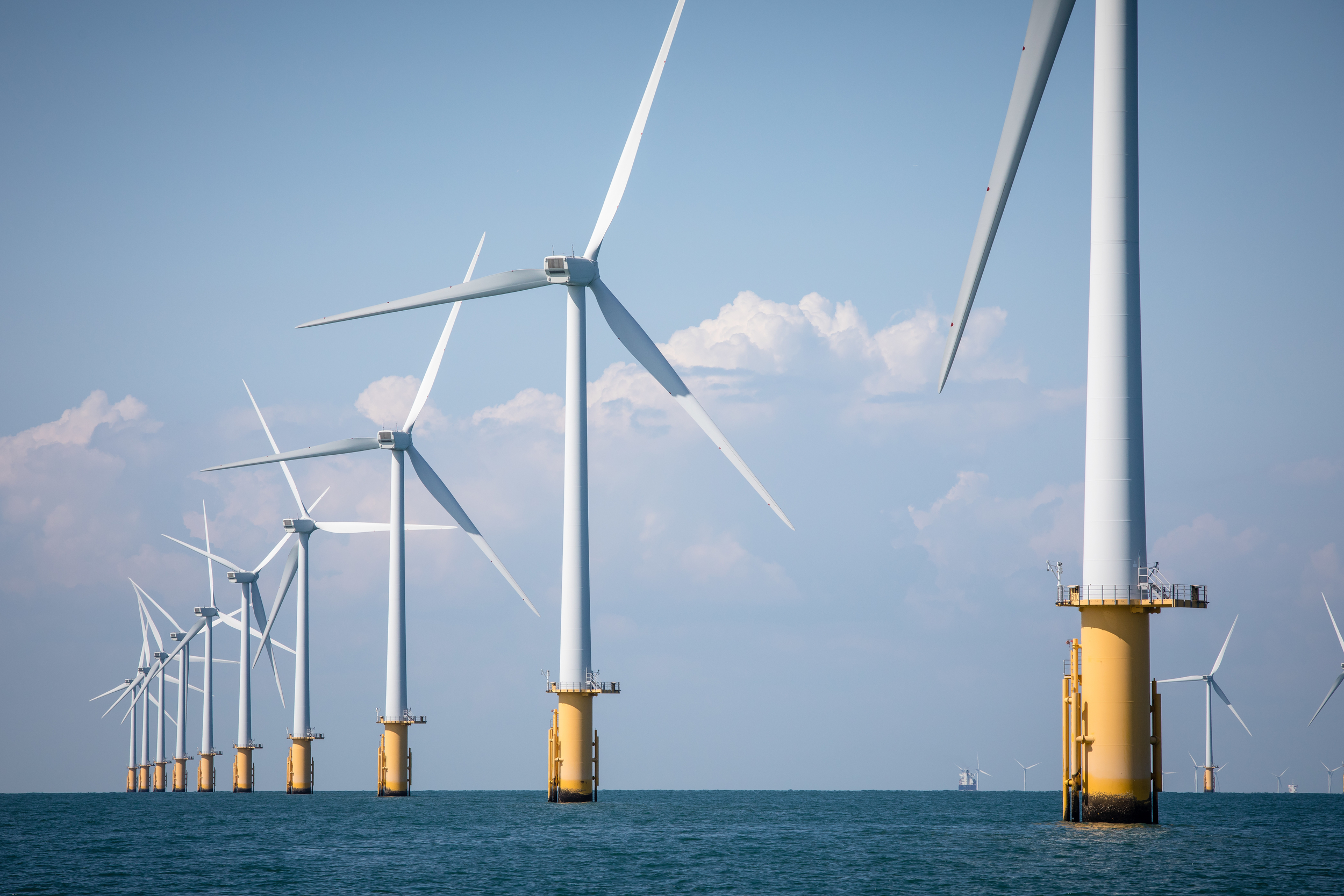
- Press Release
Crown Estate’s ‘monopoly profiteering’ hampering offshore wind and pushing up bills – Greenpeace
Greenpeace UK has warned the Crown Estate that it is considering taking legal action unless the public body stops “monopoly profiteering” at the expense of bill payers and offshore wind developers. The warning comes ahead of a major auction where energy firms are expected to bid for plots of seabed on which to build new wind farms.
The Crown Estate manages all of the land and property belonging to the King, and provides revenue to the Treasury and the Royal Household. As the legal owner of the entire UK seabed outside of Scotland, it runs auctions to lease blocks of seabed to offshore wind developers, generating income from option fees and leasehold rents.
Greenpeace argues that the Crown Estate has exploited its monopoly position to charge hefty fees for leases of the seabed. It alleges that this has led to a pricing system that has massively boosted the estate’s profits, as well as the pay of its executives and the Royal Household’s official income, while driving higher costs for the wind power sector and energy bill payers.
The campaign group is calling for a review of the way seabed auctions are run and of the option fees that wind developers must pay. It argues that the current system risks loading unnecessary costs onto energy bills twice – both through higher option fees and by incentivising wind farms in Scotland, where fees are capped. As energy demand is higher in England, the power generated in Scotland sometimes needs to be carried south, and when that’s not possible, wind turbines are paid to switch off.
Greenpeace UK co-executive director Will McCallum said: “The Crown Estate should be managing the seabed in the interest of the nation and the common good, not as an asset to be milked for profit and outrageous bonuses. We should leave no stone unturned in looking for solutions to lower energy bills that are causing misery to millions of households. Given how crucial affordable bills and clean energy are to the government’s agenda, the Chancellor should use her powers of direction to ask for an independent review of how these auctions are run. If the problem isn’t fixed before the next round, we may need to let a court decide whether or not what’s happening is lawful.” [1]
In the first three auction rounds, the ‘option fee’ paid by bidders was capped. But in the fourth round that concluded in January 2023, the estate shifted to a price-uncapped competitive auction, leading to a dramatic increase in fees. As a result, the estate made over £1 billion in 2024/25 and its profits have skyrocketed, turning the seabed into its most lucrative source of revenue.
Meanwhile, King Charles’s official income will jump from £86.3 million this year to £132.1 million in 2025/6, almost exclusively because of the profits derived from offshore wind. At the same time, the Crown Estate Commissioner’s pay has risen fivefold from around £385,000 a year in the period 2015-2020 to a staggering £1.9m in 2024/25.
The legal warning from Greenpeace comes after a lengthy correspondence and a face-to-face meeting with the Crown Estate management. The campaign group is asking for an urgent review of the bidding process, and for the excess profits from the last auction round to be invested in marine recovery.
Writing to the Crown Estate Commissioners, Greenpeace has pointed out that the estate has a legal duty to both support the UK in meeting its climate targets and to remove the monopoly value from its seabed leasing. But in their reply, the estate’s managers have insisted that its legal duty is to maximise profit, not help the government deliver on its climate ambition.[2] This position appears to contradict what the then CEO of the Crown Estate, Roger Bight, told MPs about this legal duty in 2010: “So we are quite clear, it is spelt out that we cannot exploit our monopoly position.” [3]
ENDS
Notes:
Greenpeace’s threat of legal action was first reported earlier today in the Financial Times.
[1] Under section 1(4) of the Crown Estate Act 1961, the Commissioners must comply with the direction of the Chancellor or Secretary of State: “The Commissioners shall comply with such directions as to the discharge of their functions under this Act as may be given to them in writing by the Chancellor of the Exchequer or the Secretary of State, but the Chancellor of the Exchequer or Secretary of State in giving directions to the Commissioners under this subsection shall have regard to subsection (3) above, and before giving any such direction shall consult the Commissioners.”
[2] The Crown Estate was awarded the rights to wind energy in the seabed in 2004 by the previous Labour government seeking to rapidly increase offshore wind. In the Crown Estate Act 2025, the current Labour government added an amendment stating: “Commissioners must keep under review the impact of their activities on the achievement of sustainable development in the United Kingdom”. In their replies to Greenpeace, the Crown Estate rejected that they have a duty to support decarbonisation and cheaper energy prices, arguing instead that their duty is to “manage and turn to account the assets under its stewardship” (i.e. to maximise profit).
[3] Roger Bright quoted in The management of the Crown Estate, House of Commons Treasury Committee, 2010: “Basically, the first thing to say is that our Act expressly says that we may not take advantage of our monopoly position; so we are quite clear, it is spelt out that we cannot exploit our monopoly position.”
